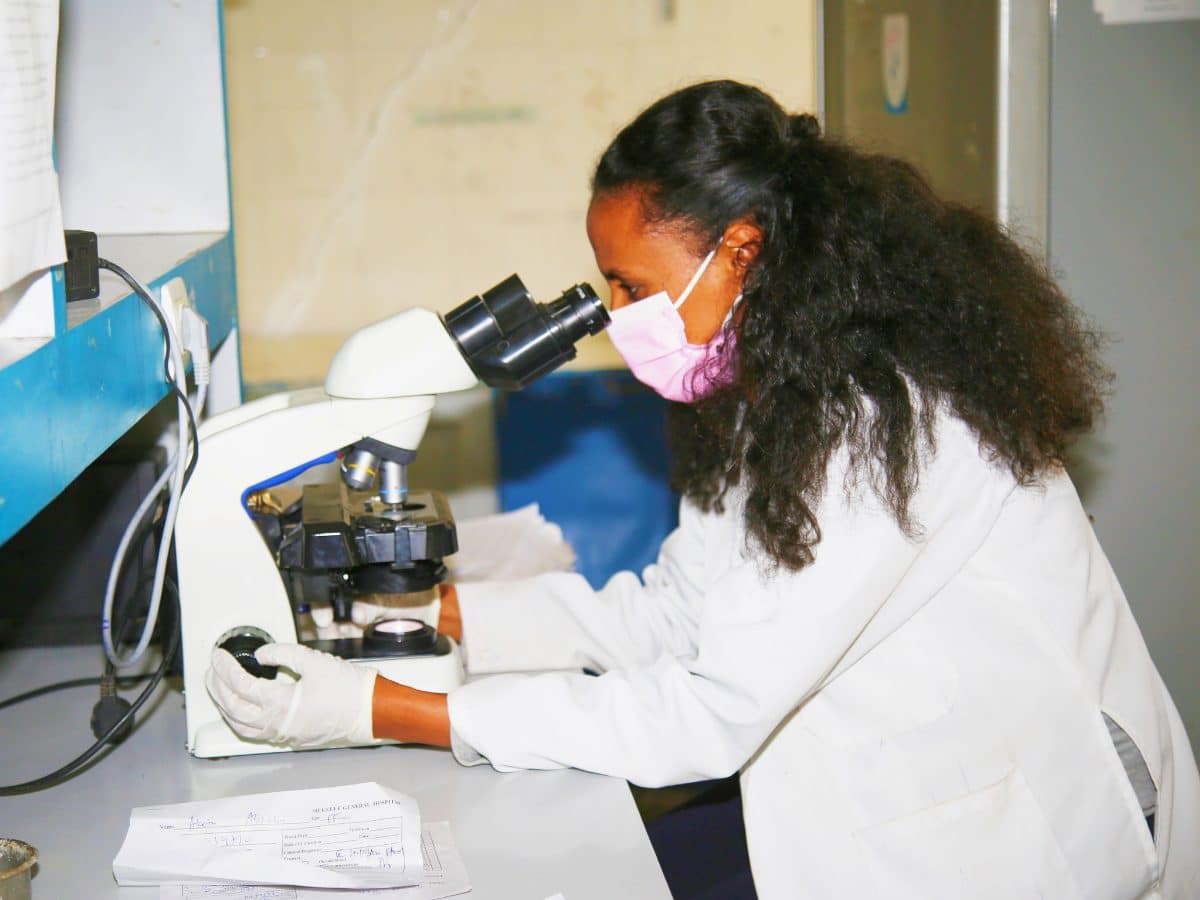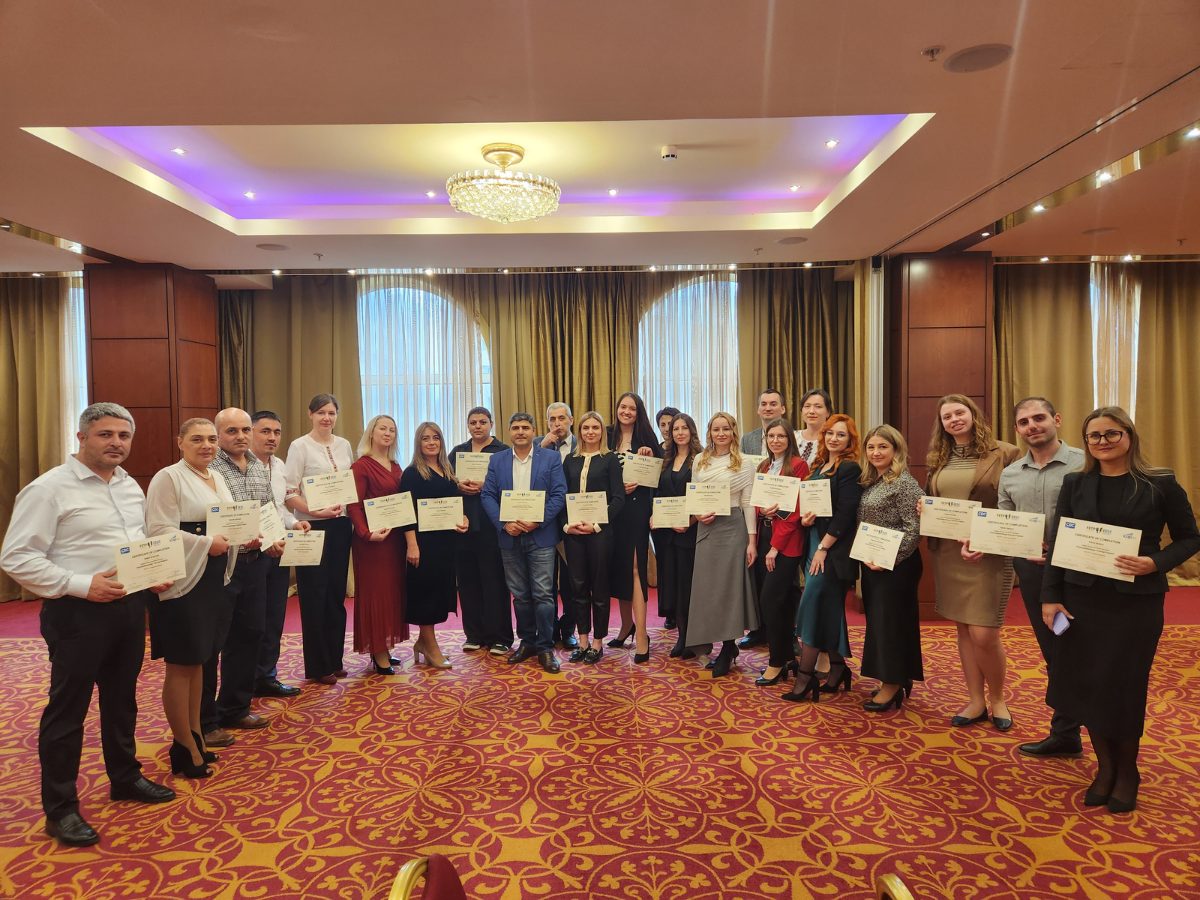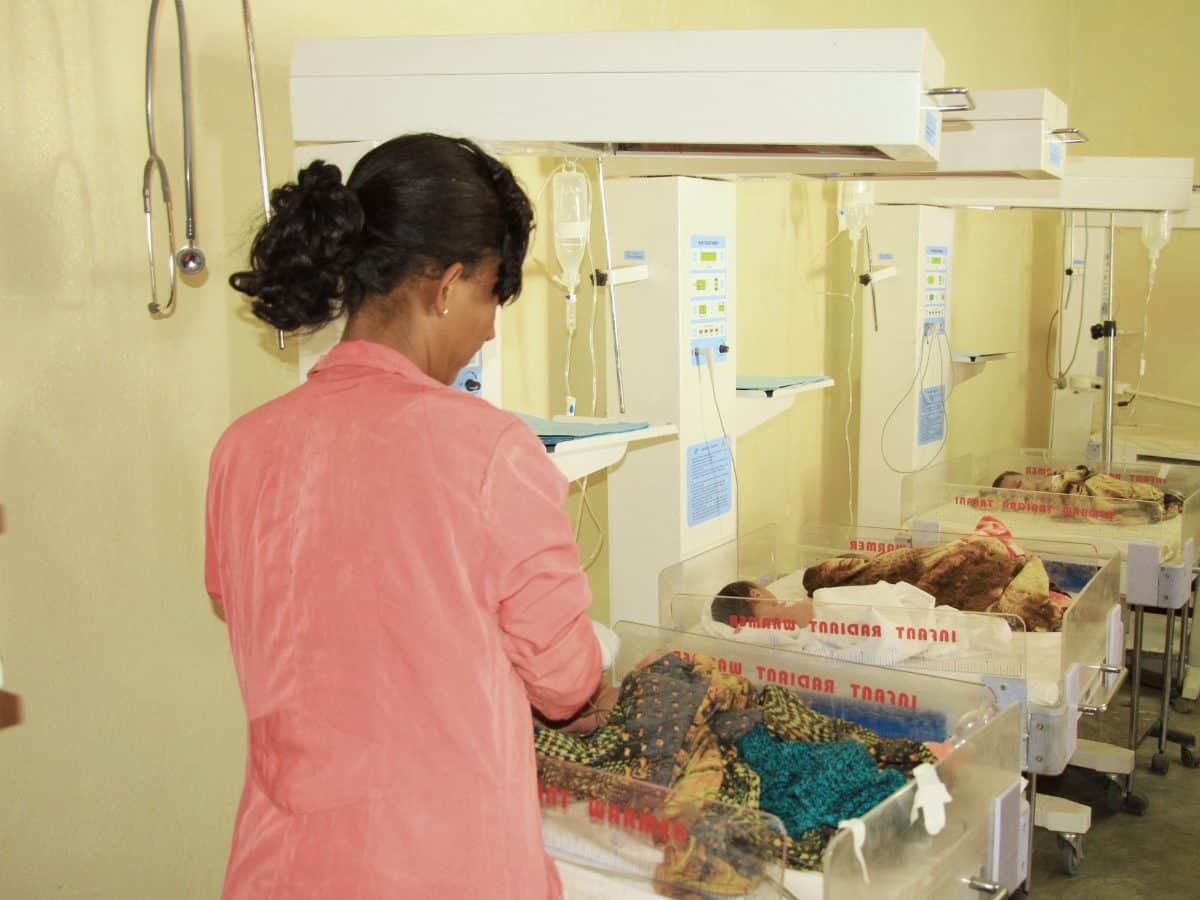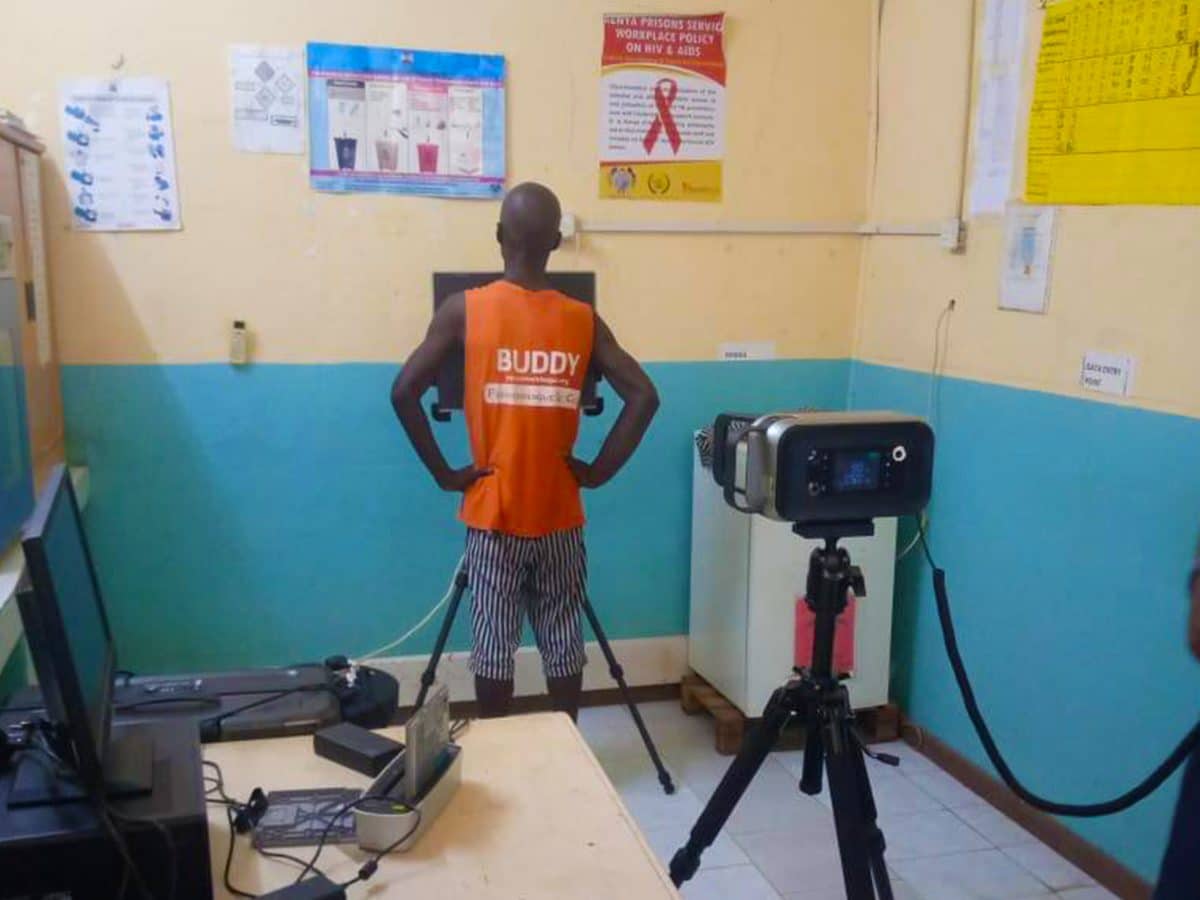At Mekelle Hospital in Tigray, Ethiopia, Ruth* felt a palpable change in the hospital’s HIV care and treatment services following armed conflict that broke out in the region in 2020.
“We faced a dire situation with a shortage of HIV medications at our hospital,” said Ruth, who is HIV-positive and a recipient of care at Mekelle. “Many were forced to use expired drugs just to survive and were unable to access vital CD4 [which measures the health of one’s immune system] and viral load tests.”
The armed conflict in Tigray devastated the region’s health infrastructure. Destroyed health facilities and disrupted supply chains left 43,000 people living with HIV in the region with limited access to care and treatment, including the 5,000 patients living with HIV who access services out of Mekelle Hospital. People living with HIV who regularly received antiretroviral therapy (ART) before the conflict lost access to treatment, leaving them at risk of an unsuppressed viral load.
Laboratory services also collapsed – the supply chain and referral network that health facilities depended on for delivering optimal and timely HIV-related testing were entirely disrupted. This meant that individuals living with HIV, including HIV-exposed infants, could not be notified of or treated for their HIV diagnosis and those with advanced HIV disease could not be screened for opportunistic infections and monitored for their viral load.
With support from the U.S. President’s Emergency Plan for AIDS Relief (PEPFAR) through the Centers for Disease Control and Prevention (CDC), ICAP in Ethiopia quickly launched an emergency response program in 2023 to restore the disrupted HIV laboratory and ART services in Tigray.
ICAP collaborated with the Ministry of Health, Ethiopian Public Health Institute, Tigray Region Health Bureau, CDC, and other stakeholders to provide comprehensive laboratory support to 45 high-case load health facilities. This included procurement of laboratory equipment, furniture, information technology materials, standard registers, laboratory request forms, provider support tools, job aids, and client education materials. These resources enabled the health facilities to resume HIV testing and monitoring services, ensuring continued treatment and care for people living with HIV.
ICAP also provided training to health care workers on new testing protocols, enhancing their skills in rapid HIV testing, viral load monitoring, and other essential areas. In addition, dried blood sample (DBS) referral and early infant diagnosis (EID) testing were reinitiated at the Tigray Health Research Institute (THRI), the main testing laboratory in the region. Another critical milestone was the resumption of HIV viral load monitoring sample collection and referral in June 2023, with services beginning again at both THRI and Axum University Hospital in Tigray.
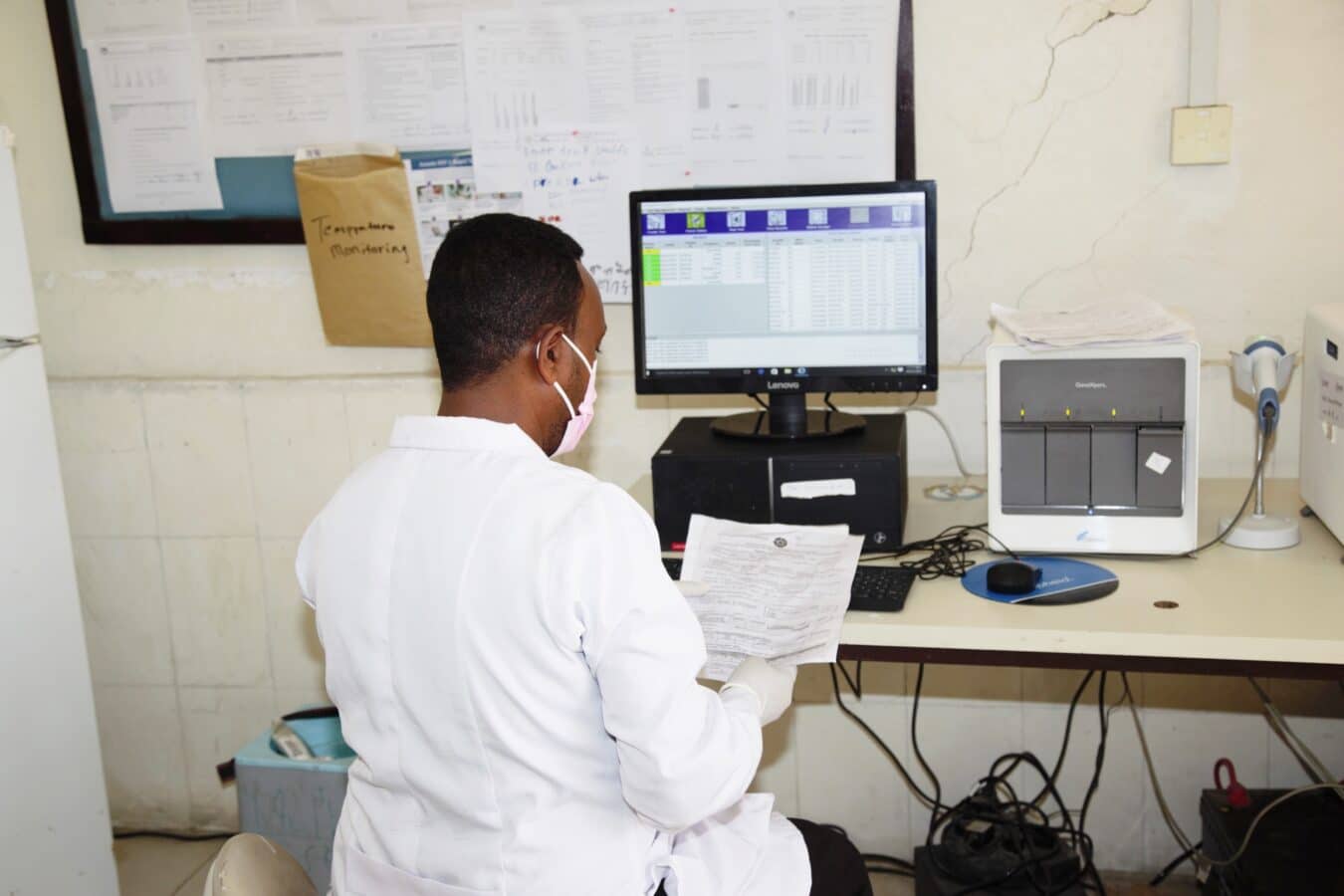
Gebremeskel Gebre, a laboratory technician at Mekelle Hospital, inputs laboratory findings into a central system.
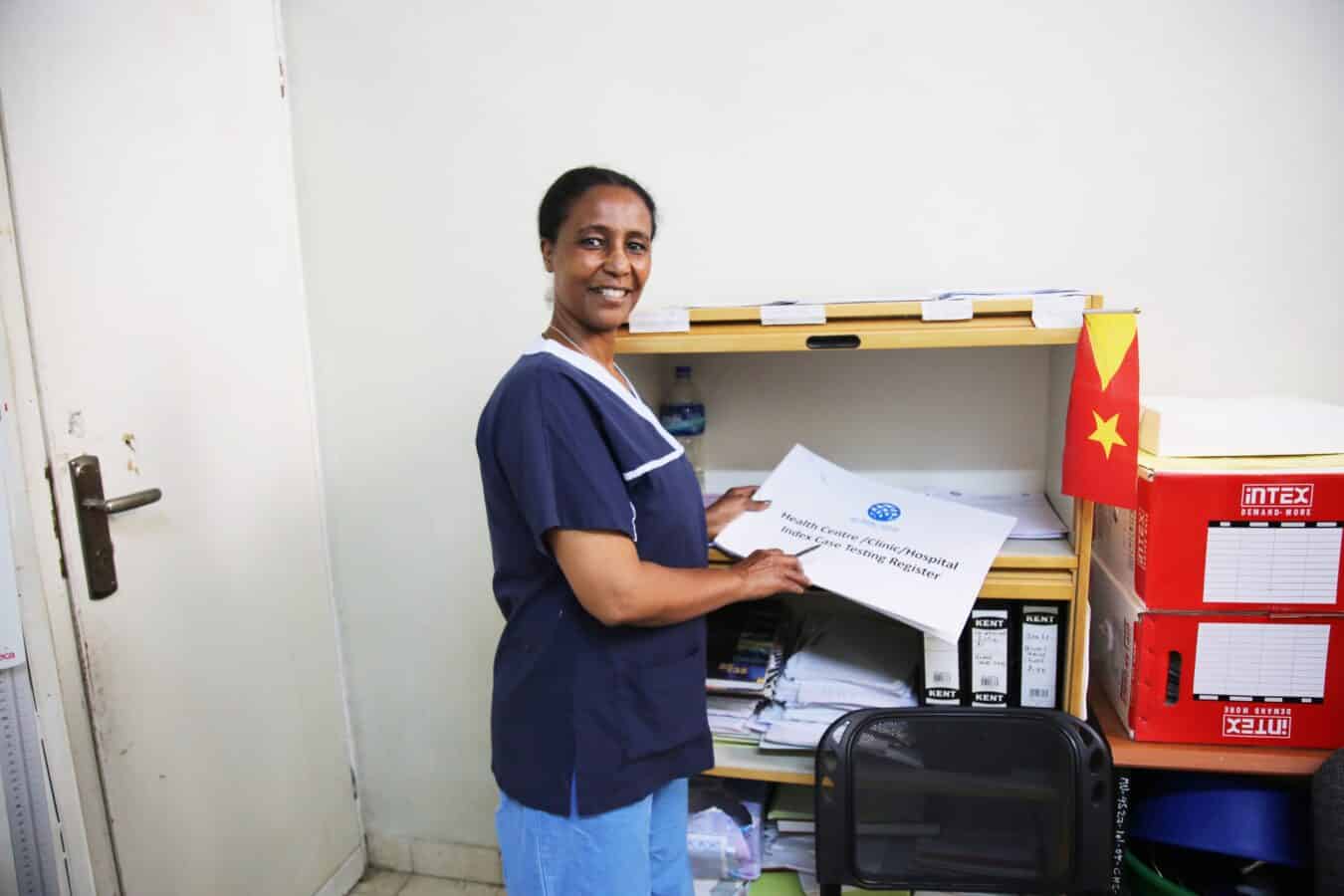
ICAP supported laboratories in building back their facilities, including through procurement of registers to document patients, job aids, client education material, and more, after conflict impacted productivity.
Haylom Kahsay, MD, director general of THRI, emphasized that ICAP’s efforts were crucial in reviving basic HIV laboratory testing services after the conflict. He also highlighted ICAP’s leading role in the “Bringing Back Campaign,” a national campaign that aimed to locate and return to care those who were lost to follow-up during the conflict. This campaign reached 45 health facilities across the region, successfully bringing 93 percent of people living with HIV back into care and treatment.

Haylom Kahsay, director general of THRI
“Restoring laboratory services for HIV, TB, malaria, and other opportunistic infections would have been impossible without ICAP’s unwavering support,” said Kahsay.
With ICAP’s support, a total of 85 health facilities had resumed HIV testing services in Tigray region by December 2023, and more than 50,000 people received rapid HIV tests, including 356 HIV-exposed infants who underwent EID testing. Over 70 facilities resumed viral load sample collection, boosting regional viral load testing coverage to 78 percent, with an impressive 94 percent viral suppression rate.
“Our emergency response, along with capacity building initiatives, has renewed hope for people living with HIV and significantly strengthened the region’s long-term health care resilience,” said Zenebe Melaku, MD, ICAP country director in Ethiopia. “Encouraged by the success of this emergency response, we remain committed to providing unwavering support to other regions of the country affected by conflict and other emergencies.”
*Ruth is a pseudonym
About ICAP
A major global health organization that has been improving public health in countries around the world for two decades, ICAP works to transform the health of populations through innovation, science, and global collaboration. Based at Columbia Mailman School of Public Health, ICAP has projects in more than 40 countries, working side-by-side with ministries of health and local governmental, non-governmental, academic, and community partners to confront some of the world’s greatest health challenges. Through evidence-informed programs, meaningful research, tailored technical assistance, effective training and education programs, and rigorous surveillance to measure and evaluate the impact of public health interventions, ICAP aims to realize a global vision of healthy people, empowered communities, and thriving societies. Online at icap.columbia.edu


